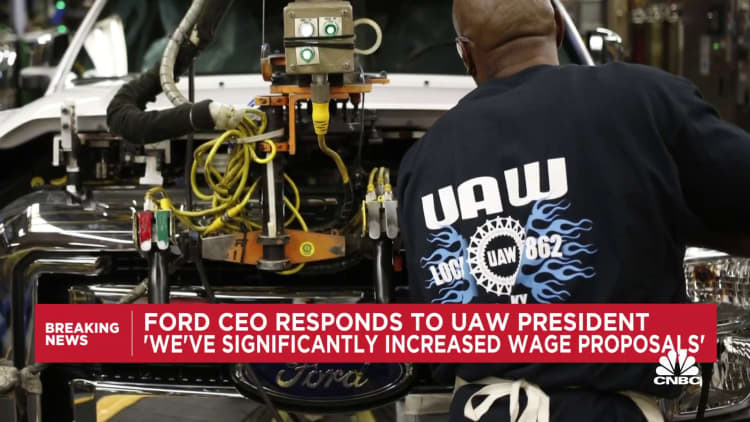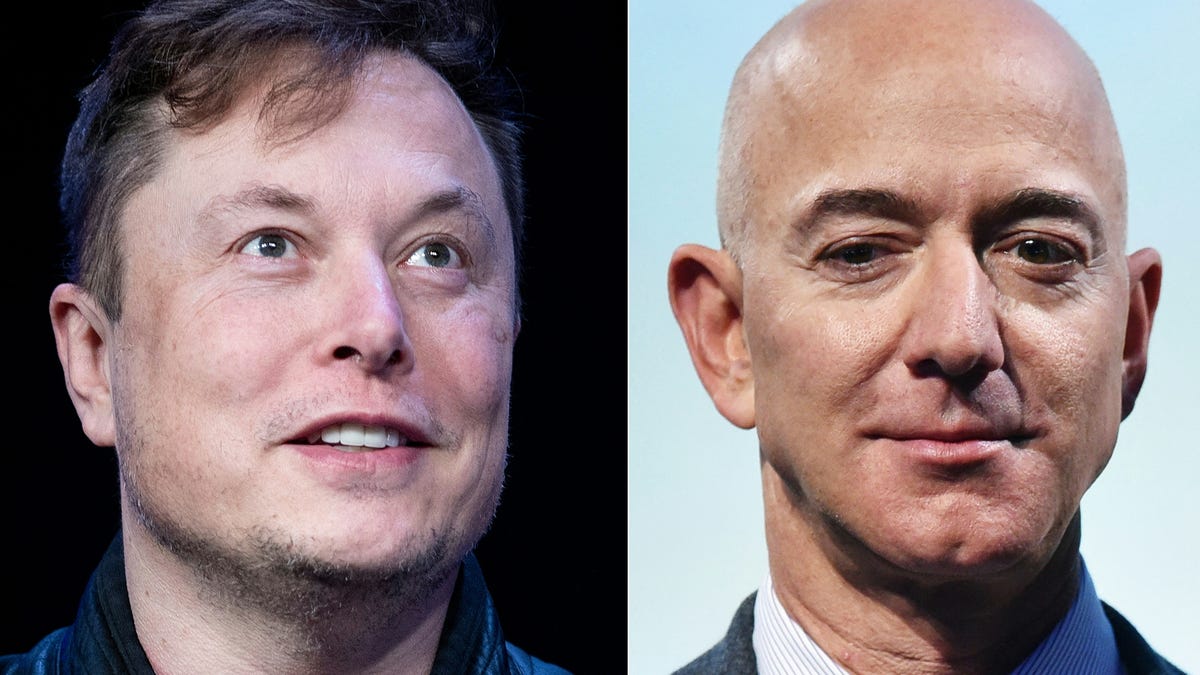Ford Motor CEO Jim Farley has responded to comments made by United Auto Workers (UAW) President Shawn Fain, who accused the company of not taking the bargaining process seriously ahead of a strike deadline on Thursday. Farley placed the blame on Fain for not participating in negotiations and failing to provide a genuine counteroffer to Ford’s economic proposals. He mentioned that Fain was absent from a meeting on Tuesday that he and Ford Chair Bill Ford expected him to attend, stating that it is challenging to negotiate when there is no feedback from the other party. Farley’s response came after he expressed optimism about reaching a deal with the union just 24 hours earlier.
The public criticism between the UAW and Ford is not unusual, but what is different this time is the level of detail being released, the announcement of strike plans, and the simultaneous negotiations with other automakers like General Motors and Stellantis.
Farley also expressed surprise that Fain was not aware of the latest offer until it was discussed during a Facebook Live session with union members. He questioned whether Fain is occupied with planning strikes or PR events, preventing him from providing feedback to make the best possible offer.
The UAW has not responded immediately to Farley’s comments or a letter issued by Ford countering many of Fain’s criticisms. The union has stated its demands, which include a 40% hourly pay increase, a reduced 32-hour workweek, a return to traditional pensions, the elimination of compensation tiers, and the restoration of cost-of-living adjustments, among other things.
Farley declined to comment on whether he believes the union is bargaining in good faith, which could potentially lead to a complaint with the National Labor Relations Board. The UAW recently filed unfair labor practice charges against General Motors and Stellantis with the board for not bargaining in good faith or in a timely manner, but it did not file a complaint against Ford.
Ford’s most recent proposal includes some of the union’s demands but falls short in some areas. It offers a 20% wage increase, a reworked profit-sharing formula, increased vacation days, two-week paid parental leave, and the progression of “temp” workers to regular employees within 90 days. However, the proposal rejects the union’s retiree and health-care proposals.
If an agreement is not reached by the Thursday deadline, Fain stated that the UAW would initiate targeted strikes at specific plants belonging to the Detroit automakers. Fain also expressed the belief that strikes against the companies are likely necessary to achieve the union’s goals.
In a letter issued following Fain’s remarks, Farley emphasized Ford’s commitment to reaching an agreement that benefits its employees and allows for future investment. He disputed the claim that Ford has not made a great offer, highlighting the four proposals the company has presented, which have become increasingly generous. Farley also underscored the company’s support for the UAW and urged both parties to focus on finding creative solutions instead of planning strikes and PR events.
The future of the industry is at stake, and both Ford and the UAW should make efforts to prevent a disastrous outcome.














